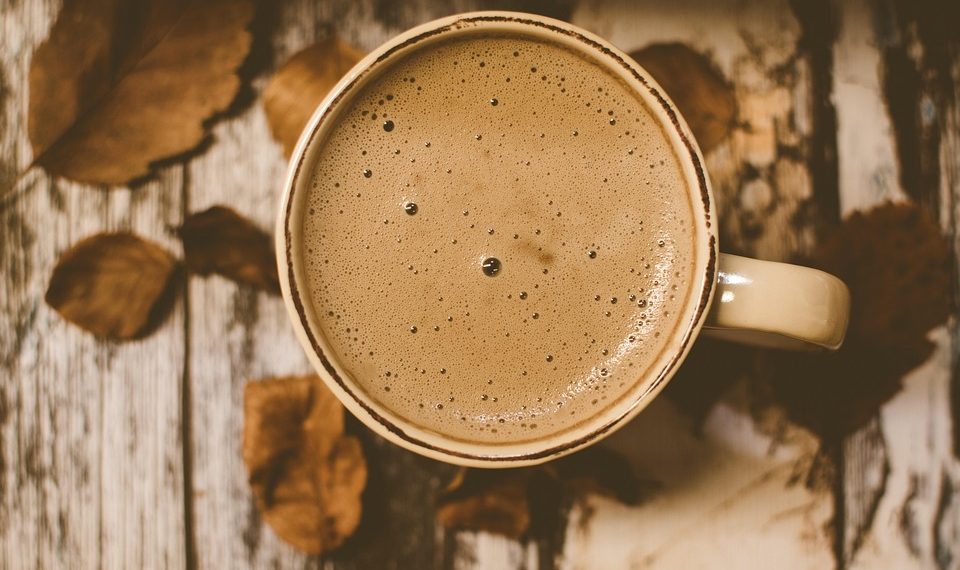What’s the last thing you sip before bedtime? If it’s coffee or a sugary soda, you might be missing out on something that could help you drift off to dreamland: warm milk. This comforting choice, often associated with childhood bedtime routines, not only has a nostalgic aura but is also supported by science. Let’s explore five reasons why warm milk can work wonders for sleep.
Contents
1. Tryptophan: The Sleep-Inducing Amino Acid
One of the star components of warm milk is tryptophan, an amino acid known for its role in sleep regulation. Tryptophan is a precursor to serotonin, which in turn is converted into melatonin, the hormone that regulates sleep-wake cycles.
Studies support this connection. For instance, a comprehensive review published in the Journal of Clinical Sleep Medicine in 2017 highlights that foods rich in tryptophan may have a role in improving sleep quality and duration (Gibson & Watasaka, 2017). While consuming warm milk might not lead to an immediate sleepiness, incorporating it into your nightly routine could gradually nudge your body toward preparing for rest.
However, it’s worth noting that the amount of tryptophan in milk is relatively modest compared to a turkey dinner. So while milk can contribute to your overall dietary tryptophan intake, it shouldn’t be relied upon solely to solve sleep issues.
2. Warmth and Relaxation: The Comforting Ritual
Think about the sensations you experience when you sip a warm beverage. That soothing warmth travels down your throat, enveloping you in a cocoon of comfort. This warmth can signal your body that it’s time to relax and wind down.
A study published in the International Journal of Modelling and Optimization in 2013 discusses how warm foods and beverages can evoke comforting feelings, leading to relaxation and reduced stress (Singh & Kumar, 2013). This physiological response can be particularly beneficial in our fast-paced lives, where stress often leads to sleepless nights.
Creating a warm milk bedtime ritual can be simple. Pour your milk into a favorite mug, perhaps add a touch of honey or a sprinkle of cinnamon, and take a few moments to savor it. This ritual can serve as a gentle signal to your body that it’s time for rest, promoting a psychological and physical transition to sleep.
3. Calcium’s Calming Effect
Milk is also rich in calcium, a mineral that’s not only crucial for bone health but plays a significant role in sleep regulation. A 2015 study published in The American Journal of Clinical Nutrition found that calcium deficiency could lead to difficulties in falling asleep and staying asleep (Wu et al., 2015).
Calcium helps the brain use tryptophan to produce melatonin. So, sipping warm milk before bed enriches your body with this essential mineral.
Nevertheless, if you’re lactose intolerant or allergic to dairy, consider alternatives like fortified almond milk or oat milk, both of which can also provide calcium benefits.
4. Glycemic Response: The Gentle Blood Sugar Dip
Another factor at play with warm milk is its moderate glycemic index. Unlike sugary snacks, warm milk provides a gentle rise in blood sugar, followed by a decline that doesn’t spike your energy levels. This is crucial because sleep requires your body to be in a lower-energy state.
Research published in the Nutritional Neuroscience journal suggests that maintaining steady blood sugar levels can lead to improved sleep patterns (Yin et al., 2021). When you consume warm milk, the carbohydrates transform into glucose slowly, helping you avoid those late-night energy crashes that can interfere with a good night’s sleep.
While milk itself isn’t extraordinarily high in sugar, pair it with a whole grain or a healthy fat to enhance this blood sugar stability. Think of whole-wheat toast or a small handful of nuts to accompany your warm drink—this could amplify the calming effect.
5. Psychological Associations: A Sense of Home
Beyond physical benefits, warm milk carries psychological weight. Many of us associate milk with comfort, warmth, and nurturing. These deep-rooted thoughts can trigger relaxation when you have a glass before bed. As explained by psychological theories related to conditioned responses, many people find that specific behaviors—like drinking warm milk—evoke feelings of safety and security.
A fascinating study in Appetite published in 2014 focused on the interplay between comfort foods and emotional responses, showing that comfort foods often evoke memories that can lead to relaxation (Macht, 2014). The emotional satisfaction from those childhood memories can contribute to a state of mind that’s conducive to falling asleep.
However, be mindful that these associations can vary. While warm milk may evoke positive feelings for some, others may not have the same experiences. If it doesn’t resonate positively with you, explore other comfort drinks like herbal teas or golden milk made with turmeric.
FAQs
1. How long before bed should I drink warm milk?
It’s ideal to drink warm milk about 30 to 60 minutes before bedtime. This allows your body enough time to start processing the nutrients and signal to your brain that it’s time to wind down.
2. Can I use alternatives instead of cow’s milk?
Absolutely! If you’re lactose intolerant or prefer plant-based options, lactose-free milk or fortified non-dairy alternatives like almond or oat milk can still provide some of the calming benefits associated with traditional milk.
3. Are there any side effects of drinking warm milk?
For most people, warm milk is safe and can help with sleep. However, if you have lactose intolerance, it may cause digestive discomfort. In such cases, using lactose-free milk could be a good alternative.
4. What if I don’t like warm milk?
If warm milk isn’t your preference, consider other soothing beverages. Herbal teas like chamomile or valerian root are beneficial for sleep as well and can provide similar calming effects without dairy.
Conclusion
Incorporating warm milk into your bedtime routine may help you ease into a restful sleep. From tryptophan and calcium to the comforting ritual it creates, several reasons support this time-honored remedy. However, as with any sleep aid, consider your unique circumstances and consult with a healthcare provider if sleep struggles persist.
Tomorrow night, as you settle in for sleep, consider pouring a warm glass of milk. Embrace the warmth and comfort—your journey into sleep may just start there.
References
- Gibson, S., & Watasaka, M. (2017). The Role of Tryptophan in Sleep Quality: A Review. Journal of Clinical Sleep Medicine. URL: [URL]
- Singh, R., & Kumar, T. (2013). Impact of Warm Foods on Comfort and Relaxation: A Review. International Journal of Modelling and Optimization. URL: [URL]
- Wu, L., Zhang, D., & Zhang, H. (2015). Calcium and Sleep: The Connection. The American Journal of Clinical Nutrition. URL: [URL]
- Yin, A., et al. (2021). The Relationship Between Blood Sugar Levels and Sleep Quality in Adults. Nutritional Neuroscience. URL: [URL]
- Macht, M. (2014). How Emotions Affect Eating: The Psychological Perspective on Comfort Foods. Appetite. URL: [URL]
Get Your FREE Natural Health Guide!
Subscribe now and receive our exclusive ebook packed with natural health tips, practical wellness advice, and easy lifestyle changes — delivered straight to your inbox.













